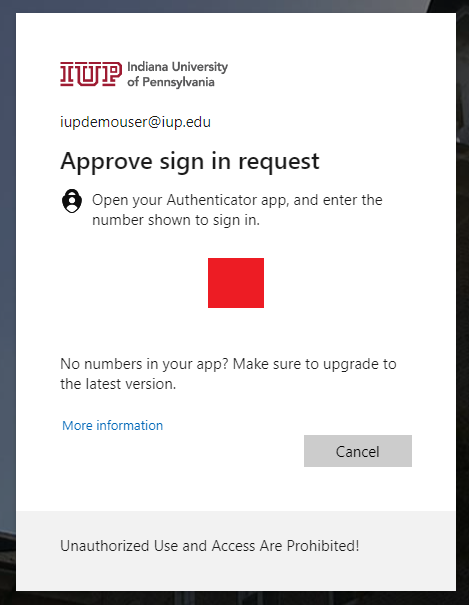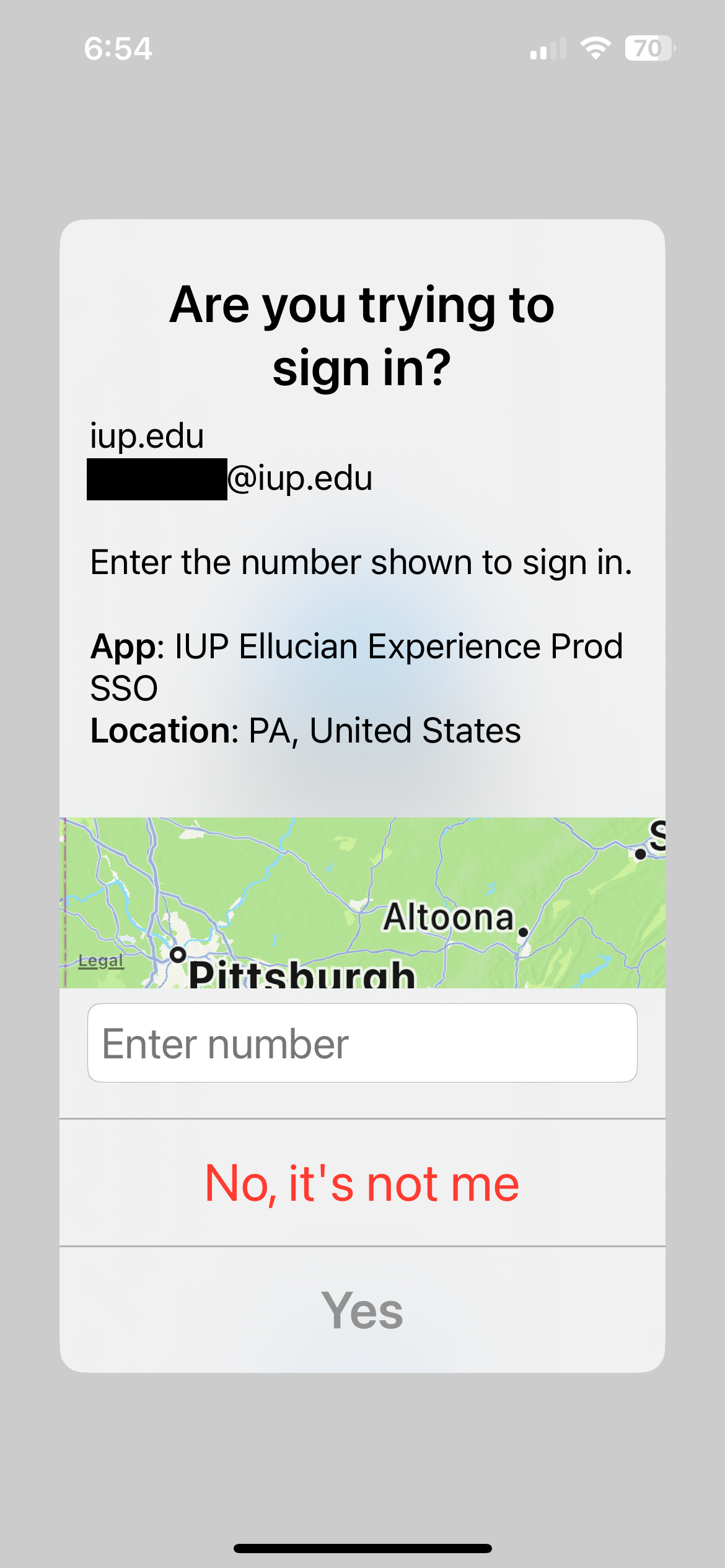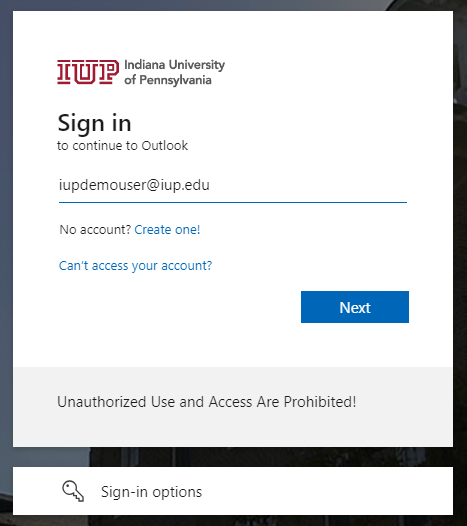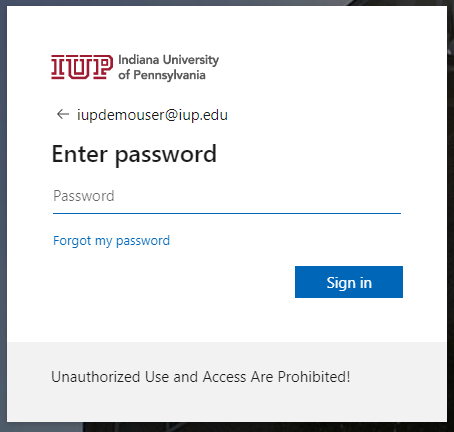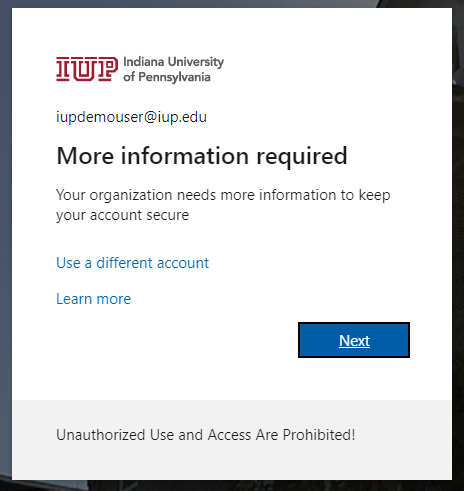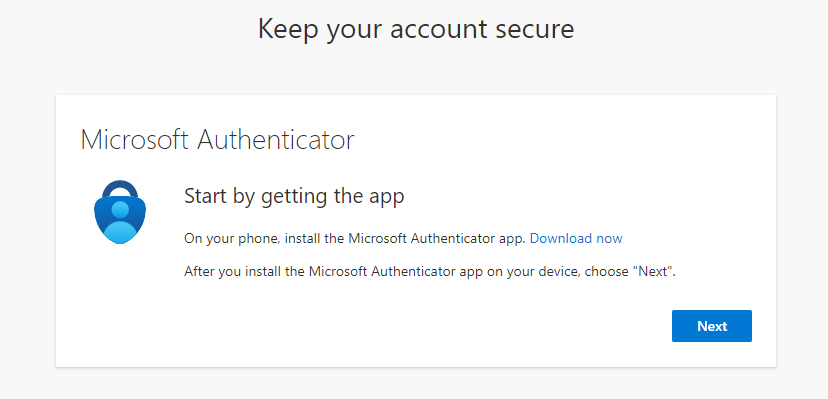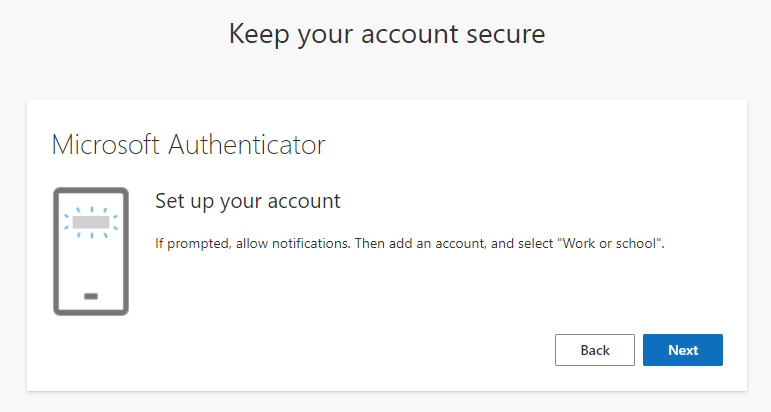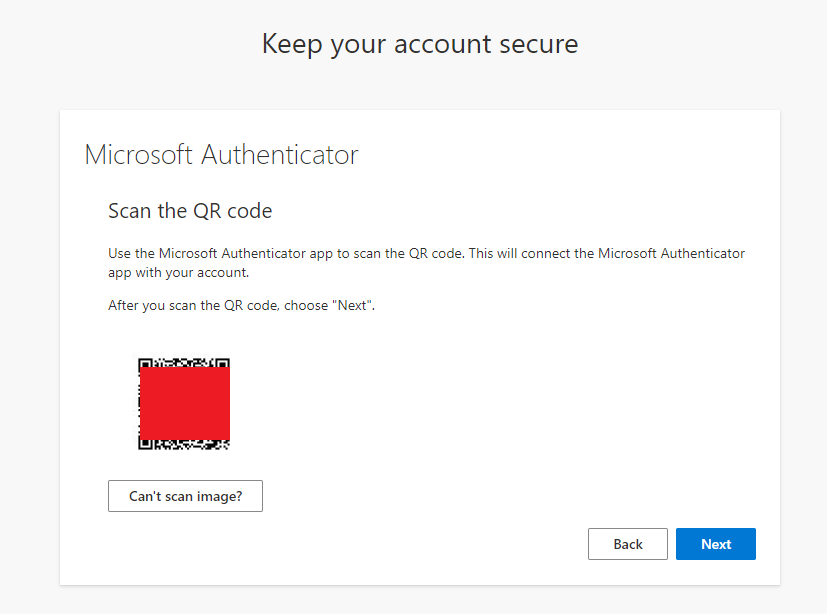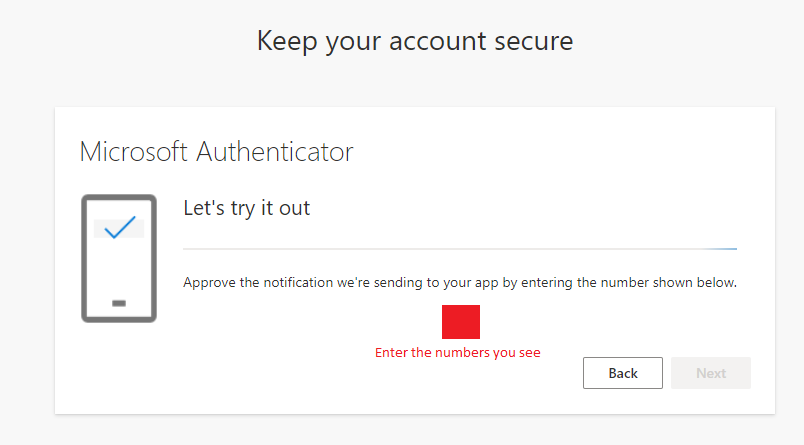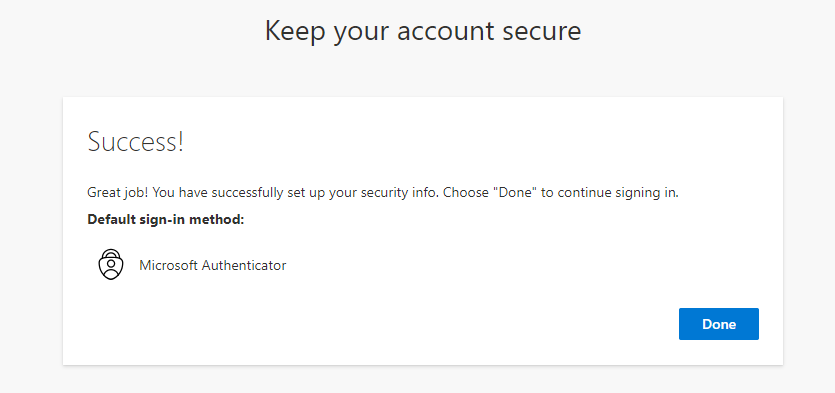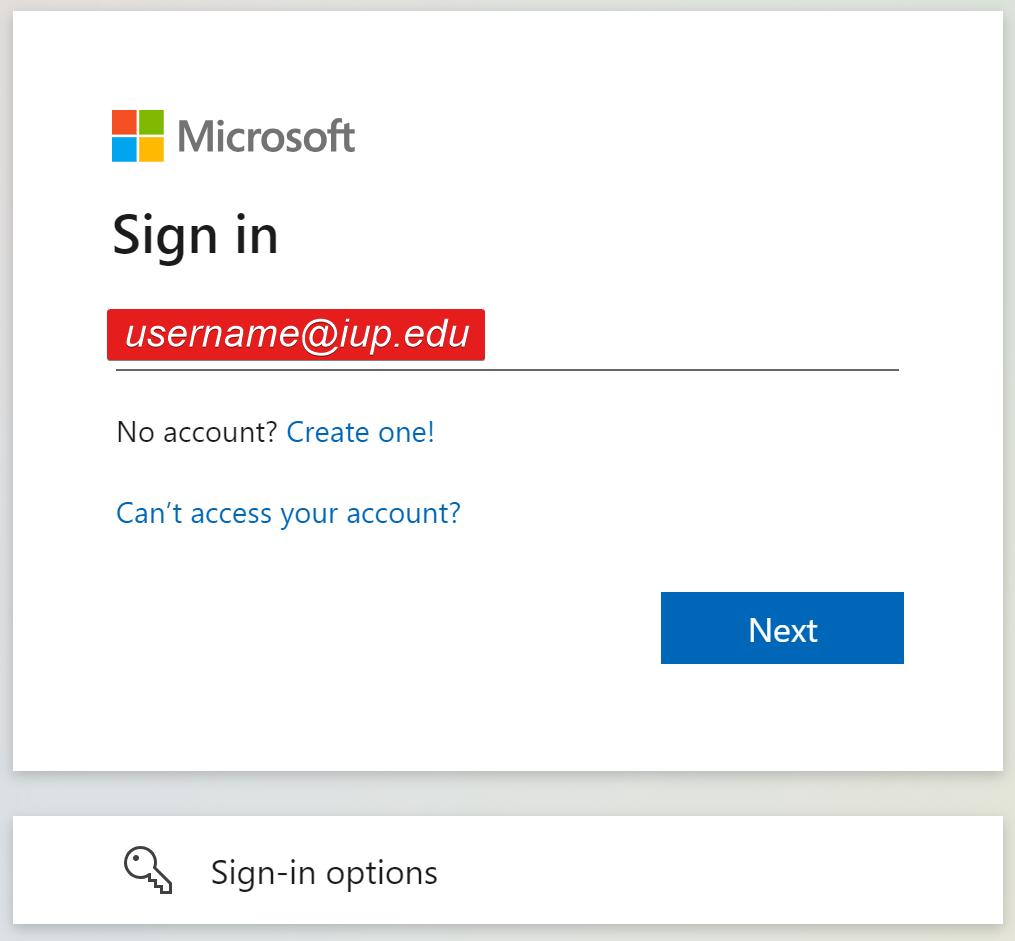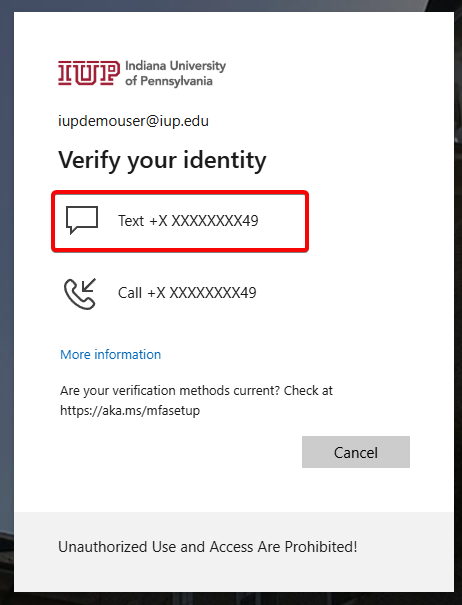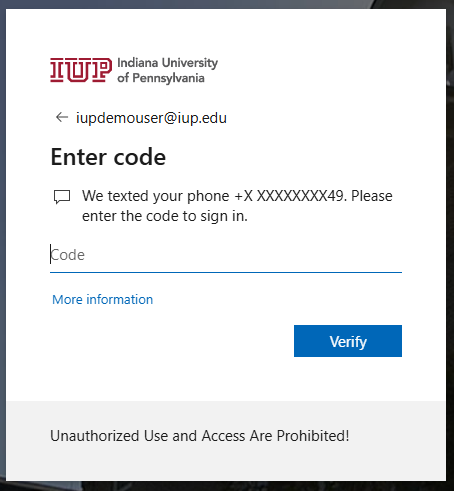You can add up to five iOS, iPadOS, or Android devices (that support the Microsoft Authenticator app) to your account. When you log in, all of your registered devices will receive the notification. Open the notification on whatever device is closest to you.
- Download and install the Microsoft Authenticator app.
- Visit the Apple App Store or Google Play store on your device and install the Microsoft Authenticator app.


- Open the Authenticator app and accept any license terms.
- If you already use the Authenticator app for other accounts: click the + button in the top right, then Work or school account, then Sign in.
- If you do not already use the Authenticator app for other accounts, click Add work or school account.
- Sign in with your IUP email address and password.
- On the next screen, you will see a normal Authenticator request with two numbers. Enter those two numbers into the existing Authenticator app on your other device.
- On the "Sign-in with your phone" screen, tap Continue, then Register.
Congratulations! You've completed the Authenticator setup on your second device. Now you're ready to log in and keep your account secure, no matter what device you're using.
Managing your devices
If you need to remove a device that you have added, go to the Microsoft Security Info page portal. Click Delete next to the device you want to remove.
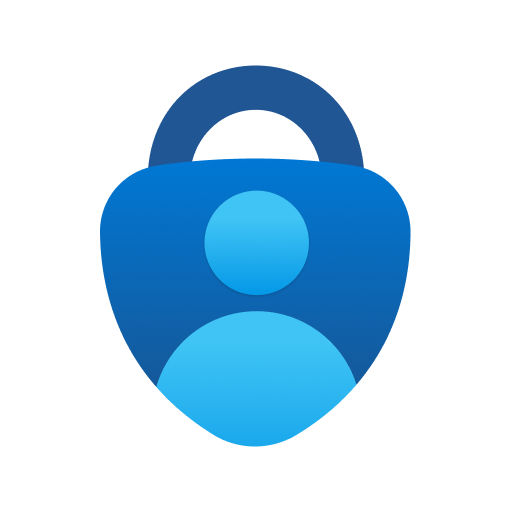 Multi-factor authentication (MFA) is a technology that requires the user to provide two or more verification factors to gain access to an application. Instead of asking only for a username and password, MFA requires one or more additional verification factors, which decreases the likelihood of an account compromise.
Multi-factor authentication (MFA) is a technology that requires the user to provide two or more verification factors to gain access to an application. Instead of asking only for a username and password, MFA requires one or more additional verification factors, which decreases the likelihood of an account compromise.